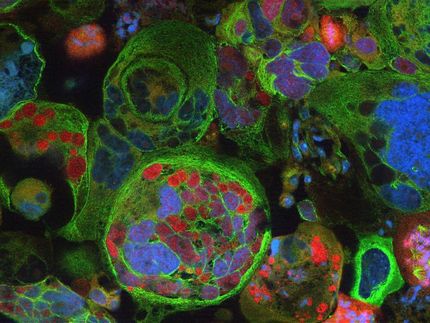Apeiron initiates clinical study to investigate prevention of radiation-induced skin damage in breast cancer patientes
Apeiron Biologics AG announced that a clinical trial has started with the agent superoxide dismutase (project APN201) to investigate its potential for prevention of radiation dermatitis in breast cancer patients.
Apeiron announced that a clinical trial has started with a liposomal topical formulation of the enzyme human recombinant superoxide dismutase (project APN201) at the University Hospital for radiation therapy / Radio-oncology of the Medical University Graz. APN201 is being developed clinically in collaboration with the Austrian contract manufacturer Polymun Scientific. The double blind, placebo-controlled study is conducted at a single center and shall enroll 20 breast cancer patients that receive radiation therapy after breast-preserving surgery.
Superoxide dismutase (SOD) is an enzyme that degrades and renders harmless highly reactive oxygen radicals that occur, amongst other situations, during radiotherapy of cancer. This pilot study aims at investigation of safety and tolerability of topical APN201 as well as hints for efficacy to prevent radiation dermatitis in breast cancer patients that undergo radiotherapy after surgery. In general, about fifty percent of cancer patients receive radiotherapy (in addition to chemotherapy, surgery and other therapies). Often, concomitant skin damage occurs which is comparable to burns. This radiation dermatitis can be severe and even lead to discontinuation of radiotherapy. Today, radiation dermatitis is mainly treated symptomatically with skin creams.
University Professor Karin Kapp, Head of the University Clinic for Radiation Therapy / Radio-oncology in Graz and principal investigator of the study: "Skin damage that may occur during radiotherapy is a severe problem for many cancer patients and can even force discontinuation of this therapy in some cases. Hence, it is of utmost clinical and scientific interest to alleviate or even prevent these side effects of radiation. It is very exciting to work on a solution for this together with Apeiron."
Most read news
Topics
Organizations
Other news from the department research and development

Get the life science industry in your inbox
By submitting this form you agree that LUMITOS AG will send you the newsletter(s) selected above by email. Your data will not be passed on to third parties. Your data will be stored and processed in accordance with our data protection regulations. LUMITOS may contact you by email for the purpose of advertising or market and opinion surveys. You can revoke your consent at any time without giving reasons to LUMITOS AG, Ernst-Augustin-Str. 2, 12489 Berlin, Germany or by e-mail at revoke@lumitos.com with effect for the future. In addition, each email contains a link to unsubscribe from the corresponding newsletter.

























































